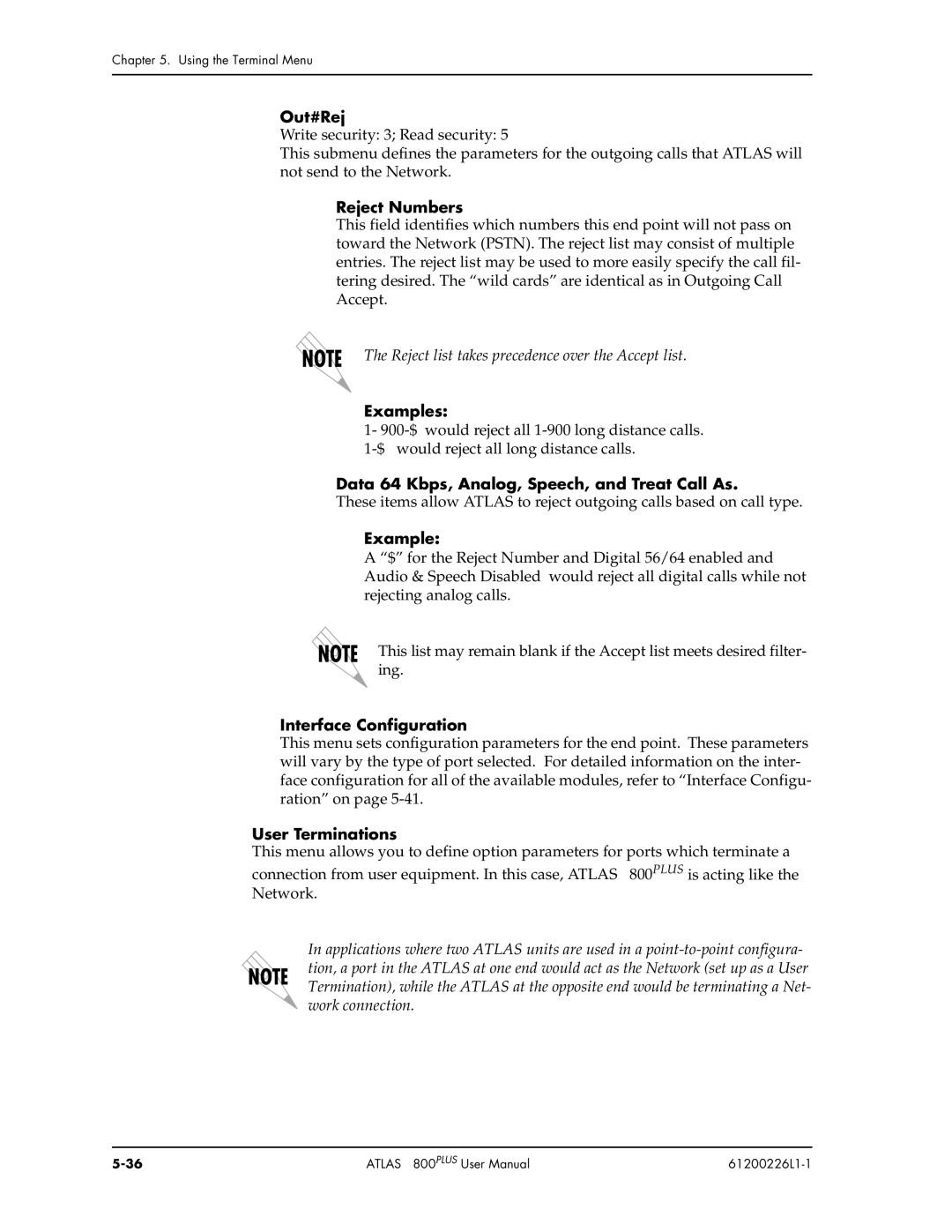
Chapter 5. Using the Terminal Menu
Out#Rej
Write security: 3; Read security: 5
This submenu defines the parameters for the outgoing calls that ATLAS will not send to the Network.
Reject Numbers
This field identifies which numbers this end point will not pass on toward the Network (PSTN). The reject list may consist of multiple entries. The reject list may be used to more easily specify the call fil- tering desired. The “wild cards” are identical as in Outgoing Call Accept.
The Reject list takes precedence over the Accept list.
Examples:
1-
Data 64 Kbps, Analog, Speech, and Treat Call As.
These items allow ATLAS to reject outgoing calls based on call type.
Example:
A “$” for the Reject Number and Digital 56/64 enabled and Audio & Speech Disabled would reject all digital calls while not rejecting analog calls.
This list may remain blank if the Accept list meets desired filter- ing.
Interface Configuration
This menu sets configuration parameters for the end point. These parameters will vary by the type of port selected. For detailed information on the inter- face configuration for all of the available modules, refer to “Interface Configu- ration” on page
User Terminations
This menu allows you to define option parameters for ports which terminate a connection from user equipment. In this case, ATLAS 800PLUS is acting like the Network.
In applications where two ATLAS units are used in a
ATLAS 800PLUS User Manual |
|
